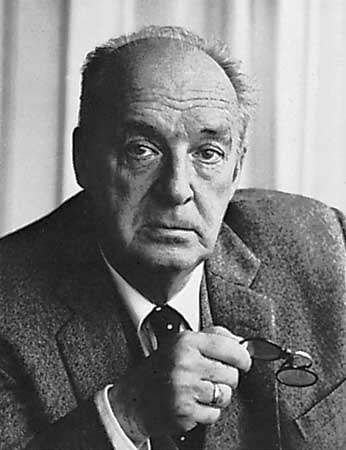The Critical Lens Expert scholarly article that I analyzed was: "Vladimir Nabokov and Sigmund Freud, or a Particular Problem" by Leland de la Durantaye. This article is about how Vladimir Nabokov dislikes Sigmund Freud's views of psychoanalysis and many elements of his writing. In this 11 page article, several differences between Vladimir Nabokov and Sigmund Freud are underscored. In many places Lolita is referenced as a book that was write to be an: "an extensive parody of Freudian myths and Freudian explanations for psychological aberration" (Stegner)


There are many things that Nabokov (Right) detests about Freud (Left) and the biggest is Freud's tendency to generalize: "Nabokov thus saw Freud as standing for many things he did not like—and, conversely, as representing what he most vehemently disliked: the generalizing of the rich particularities of which life is made up." (Durantaye 61) Nabokov disliked how Sigmund Freud generalizes ideas so much that he totally looses the whole point of the idea and the differences of those ideas. Nabokov gives an example to show us how generalizing allows one to loose the true meaning of a word: "The fatal flaw in Mr. Rowe’s treatment of recurrent words, such as ‘garden’ or ‘water,’” Nabokov tells us, “is his regarding them as abstractions, and not realizing that the sound of a bath being filled, say, in the world of Laughter in the Dark, is as different from the limes rustling in the rain of Speak, Memory as the Garden of Delights in Ada is from the lawns in Lolita” (1973, 36)." (Durantaye 61) He tells us that two words in different books cannot mean the same thing and that they all have different meaning. In other words looking at the big picture is not the right way to analyze a piece of work. Vladimir Nabokov goes on to define the injustice of generalization: "The seeker of symbols, according to Nabokov, will inevitably conflate the dissimilar and miss the distinctiveness of the detail." (Durantaye 62) Out of the many aspects of Freud Nabokov hates, generalization comes out as the worst.

There were several things that Vladimir Nabokov didn't not agree with Sigmund Freud about. Some of these were the use of mythology. generalization, and the impact of childhood experiences. Leland de la Durantaye describes the difference of both writes views side by side: "For Freud, mythology was a key for unlocking the mysteries of the psyche for the reason that he saw myths as encrypted signs and frozen forms of human drives, desires, and developments. For Nabokov, however, such approaches failed to pay close enough attention to the particularity of the work of art. Like allegory and symbolism, they granted conceptual license to interpret everything in terms of something else—and this he could not stand." (Durantaye 63) Nabokov thinks that symbols hide the meaning of a concept and they are useless. Nabokov showed his distaste of Freud when he states: "Nabokov regards Freud’s vision of the world as not only sexually perverted and socially deranged, but as denying the particular detail its rich, brimming life" (Durantaye 64) Also Nabokov, "Like many other artists, he associated childhood with creation, " believes that Freud has "upset the vision of Edenic youth" that Nabokov has "ardently cherished." (Durantaye 64)
It is stated in the article that Vladimir Nabokov "denounces the oneiromancy and mythogeny of psychoanalysis” (Durantaye 59); something that is practiced by Sigmund Freud. Nabokov also openly states his dislike towards Freud: "The only positive thing Nabokov is on record as saying about Freud is his remark in a televised French interview (1975), “I admire Freud greatly as a comic writer” (j’apprécie Freud beaucoup dans sa qualité d’auteur comique)"( Durantaye 60) As everyone knows Sigmund Freud is not a comic writer and by saying this Nabokov scorns Sigmund Freud.
Looking at the novel Lolita we can see the many places where Nabokov openly mocks Sigmund Freud. Using Humbert Humbert's character, Nabokov proceeds to "“challenge the ‘Freudians’" (Durantaye 69). late in the novel, Hubert states: "we must remember that a pistol is the Freudian symbol of the Ur-father’s central forelimb" (Nabokov 216). Saying this statement he refers to Sigmund Freud's heavy use of useless symbolism, thus making fun of him. In the notes section of this article, we see Sigmund Freud's theory of psychoanalysis: "But the rise of criminology coincides with, and is to an extent influenced by, the rise of psychoanalysis.....What is more, Freud explains neuroses—and even, on occasion, psychoses—as stemming from childhood traumas." (Durantaye 69) This idea that "psychoses stemmed from childhood traumas" did not agree with Nabokov's view. To spite Freud, Nabokov shows "Humbert’s attributing the origin of his woes to his unfulfilled love for, and traumatic loss of, Annabel." (Durantaye 69) There are so many other places in Lolita that Nabokov mocks Sigmund Freud and it is definitely not hidden between the lines.

No comments:
Post a Comment